I’ve always been shy and closed off in some ways. I think that’s the core reason I do it: I can express myself better through acting than anything else.
Photography by Exavier Castro
Photographer’s Assistant: Gilberto Ortiz
Styling by Jenny Dayco
Grooming by Jordan Alex Hurst
Produced by Jesse Simon
Global Brand Ambassador: Kee Chang
Special thanks to Michelle Carimpong & Reto Sterchi
There is a great wheel that turns and turns, and history turns with it. When it completes its circuit, the departed souls from the previous age return in new forms. This is the cosmology of Prime Video’s ambitious fantasy spectacle The Wheel of Time. The beloved series completed its own circuit this year, spinning to a premature halt following three successful seasons. Naturally, the show’s cancellation came as a huge disappointment to its very vocal fanbase. Part of that sadness has everything to do with the third season—a series high—ending on a cliffhanger. To be sure, the sprawling ensemble of characters still had quite a lot to give in terms of story and development.
Based on Robert Jordan’s 14-volume literary opus, The Wheel of Time concerns a matriarchal land overseen by a sect of women endowed with magical gifts. There are men among them, too, like Taylor Napier’s Maksim. Part warrior, part emotional anchor, he’s a grounded counterweight to the show’s more flamboyant magic-wielders. Napier is a rising actor with a promising future ahead.
Anthem recently connected with Napier for an in-depth conversation, and a photoshoot in LA.
All three seasons of The Wheel of Time is available to stream on Prime Video.
[Editor’s Note: The following conversation has been lightly edited for length and clarity.]
Hi, Taylor. Welcome back to Los Angeles.
Thank you! But it’s just briefly. I’m here for like a month. I’m gonna go see my mom for a couple weeks. And then I’ll be back in Europe. I’ll be going back to London.
And you were just in Prague. I snooped on Instagram. You performed King Lear on stage?
Yeah. When I was doing Wheel of Time, I had made a connection with the Prague Shakespeare Company. They put on this cool theater festival every year at Prague Castle. This year, they were doing King Lear. I got to play Edmond, which was really lovely. He’s one of the main villains of the season—or the show, I should say… I’m still thinking about TV! It’s always fun to play the bad guy. It was great to be back in Prague for a minute and reminisce with old friends.
What pulls you back to the stage?
I think it’s the rush of being in front of a live audience. It’s a slightly different style of performance because you’re having that dialogue. You have to think on your feet in a very different way. Are the jokes landing? What is this audience’s sense of humor? The audience takes on a collective personality. It’s a different puzzle to figure out as a performer. In a way, it’s a purer version of acting. When you’re doing film and TV, as great as they are, ultimately, your performance has gone through edits and cuts and trims, and different versions by the producers and directors and writers and editors. So by the time it gets to what the audience is watching, it’s really quite a different thing from what you did on the day. So, not wanting to sound too pretentious, theater is a purer form of the art. As they say, the show must go on.
They call it an actor’s medium for a reason, right? No one’s stopping you once it starts.
I could go on stage and say whatever I want. But there would be no next performance. [laughs]
Your canvas is big. In art, let’s consider The Wheel of Time. In life, you travel the world. Is this what you’d imagined for yourself growing up in Tennessee? What did you imagine?
I don’t know if I imagined this exactly… You know, I’m from a really small town. I love going back there, but it always felt a bit limiting growing up. I just knew that I wasn’t gonna live there full-time when I got older. Acting has been a great opportunity, being someone who doesn’t like to plant roots so much. I like to escape at a moment’s notice. I am a bit of a nomad. As frustrating as it can be to live out of a suitcase, you can be anywhere and have that freedom. I tried working in an office for a little bit, and it certainly wasn’t for me. This adventure—doing jobs in Prague or Slovenia or Morocco or Chile or Mexico—has been a real blessing and a gift. I don’t think many people get the opportunity to do things like that. It’s not something I take lightly. So it’s something I maybe didn’t envision, but I’m happy that it’s worked out this way.
Nothing compares to acting. You can stretch out so much further. It goes beyond hopping continents. There are other worlds and realities. Dreams. The Wheel of Time fantasy…
Right. On Wheels, it’s technically Earth, I guess, but culturally, it has very little to do with our version of it. I think fantasy sometimes gets a bad rap. It’s changed a little bit since Game of Thrones and the more premium fantasy shows, but in the acting community at least, it’s seen as a little over the top. I mean, I love it. It allows me to completely immerse myself in a world that feels very different to me, while at the same time, grapple with and explore very human issues and emotions that resonate. Fantasy does that really well. The otherworldliness of it allows us to put some distance between ourselves and the characters, and we’re still able to explore the human element and tell stories that reflect our society back to us. So pills are easier to swallow.
That’s really true. Not everyone is looking to escape in entertainment, but escapism is real. I know people who flat-out refuse to watch heavy arthouse dramas. It’s too depressing. Too confronting. Too real. Not everyone wants to stare directly into the reflection of their lives.
Without the distance, it’s too charged.
When did you first fall in love with acting? What was your turnstile, so to speak?
I think the first time I fell in love with acting was when I did a play in kindergarten. It was a Christmas play at school. I played a chimney sweep named Shingles. I only had one line. After I said the line, instead of going on with the blocking I was expected to do, I walked off the stage really dramatically. I think there’s something to that: feeling so alive in that moment, even as a five or six-year-old, that I had to leave. I think I was just so happy to have said my line that I couldn’t stand there for the rest of the play silently. That sweet moment is kind of imprinted on me. Then I started acting more in the seventh or eighth grade. And it might not appear as such in this conversation, but I’ve always been shy and closed off in some ways. Being on stage, or being in film and TV, I always felt a little bit more capable in expressing myself fully, almost with a similar distancing effect that happens with fantasy versus the kind of stuff that’s grounded. I felt more able to express myself fully through dialogue that had been written for me and through the characters I was inhabiting because the stakes didn’t feel quite so high personally. You go, “That’s a character. It’s not me saying these things.” I think that’s why I still do it. I think that’s the core reason I do it: I can express myself better through acting than anything else.
I find it remarkable whenever shy people admit to feeling invincible in performance.
Yeah. I mean, there are different kinds of actors who come from many different backgrounds obviously. But I find that there are really two strains of actors. There are actors who are exactly what you assume them to be. They’re the stereotypical actors with a big personality all the time. They walk into a room and they own it. They walk on stage and they’re exactly who they are. And then you have the exact opposite with actors who are incredibly shy and introverted. For those actors, being on stage and being in front of the camera is a completely different experience. I find that not too many people fall in-between on that spectrum. For someone who is shy, I think it’s almost like a security blanket that allows them to inhabit this other thing. It’s like, “I’m supposed to be this way on stage so I don’t have to worry about what other people are thinking or how they perceive me.” That’s obviously very addictive to someone who otherwise walks into social situations with a little bit of anxiety, a little bit of fear, and a little bit of reservation.
I remember being in a kindergarten play, but in no way was that my idea. I’m sure some parents use the stage as exposure therapy for their kids. Did your parents do that?
No, I don’t think so. I don’t remember them pushing me exactly… I think they were just happy that I was doing something. I mean, I was five, so it’s hard to say. And I was always pretty bad at sports. Well, not bad—I was clumsy. I would just fall over myself a lot. [laughs] So I think they were happy that I was trying to explore something else. My mom and dad were always very supportive of me in the arts, in a way that not all parents are. They’ve always been really wonderful in that regard. But they weren’t necessarily like, “You have to do it ‘cause you’re a shy kid. It’ll be good for you!” My dad was actually also very shy. He was probably more shy than I was. I don’t think he would’ve pushed me into doing anything that I didn’t want to do.
With that clumsy kid in mind, isn’t it curious just how much you rely on coordination now?
It is! You know, I think I’ve gotten more confident as I’ve gotten older. I’ve gotten more comfortable in my body. And it is a slightly different way of working with your body as an actor. How do I put this without getting too actor-y… I find that, at least in my process and the way I like to build a character, the movement stuff comes naturally with how I’ve built things. It comes later, after I’ve built the rhythm for the character. I always think of characters as having specific rhythms. It’s a specific musicality, even though I’m not musical at all. People talk a certain way and have a specific way of moving. Everyone’s internal rhythm is very different. Your body is everything as an actor. It is your instrument. It goes hand in hand with your voice and your emotions. It’s how you tell the story. So it is funny to have been so bad at that stuff growing up. With all the working out and the physical stuff I’ve had to do with Maksim, especially at the beginning of Wheel, it’s like, “How did this happen? I’m gonna embarrass myself!”
Well, you certainly succeeded—broadly speaking as well. Acting isn’t the easiest path to take, right? I know you’ve spoken before about having tried to avoid going down this path. I can only assume for the obvious reasons. It’s unpredictable. It’s highly saturated. There’s potential instability. When you graduated from Emerson College, I understand that you moved to LA through an internship in reality TV. What was your panoptic plan?
Oh god, I don’t know if I had one… [laughs] So I did move to LA through an internship, at a time when I was actually a bit of a savant in reality television. I was very good at coming up with ideas and developing them. I mean, that’s what I was aiming to do: come up with reality shows.
What kind of reality shows are we talking about?
Something like Survivor or The Amazing Race. Adventure-based. Long-form game shows. Competition series. And I enjoyed that work—to an extent. The trends in reality TV at the time were moving away from that stuff, more into the Kardashians and The Real Housewives of… sort of content. I mean, those are great, too, but it just wasn’t something I was interested in producing. And then my father passed away, at a time when I was working on a couple of shows that I didn’t enjoy working on. And I’d always wanted to be an actor. So I pivoted. I went to grad school in London to reestablish my acting training. It’s like, “This isn’t exactly what I want to be doing. I also miss acting. I should go do that now while I’m young enough to still restart.”
Would you say that you’re stubborn?
I’m so stubborn.
That’s a great asset for an actor.
You have to stick with it.
A hundred percent.
The only reason I’m still doing this is ‘cause I’m stubborn as hell. Anytime I feel like I’m throwing in the towel, I think of letting the imaginary villains in my head that keep me down and tell me negative things win. I’m like, “If I stop, I let them win.” So I probably won’t ever quit.
You touched on your father’s passing just now, which happened to coincide with you feeling unfulfilled on the reality shows you were working on. And prior to you continuing your acting studies at the Royal Central School of Speech and Drama in London, I know you went to Spain for a year to teach English. That was a defining period of transition for you.
Yeah. I wanted an exit. I wanted to go back to acting. But I was also sort of questioning it ‘cause it’s such a hard career path. It’s like, “I’m never gonna make any money doing this.” And I’ve always loved Spain. I wanted to do something kind of crazy. I was like, “What the hell am I gonna do next?” If you’re ever in that kind of headspace in your life, there’s this incredible program you can apply for. The only catch is, you can’t really choose where you end up. They assign you somewhere in Spain. You can go teach English and they’ll give you a salary. It’s not a ton of money, but it’s actually enough to live quite well in Spain. And they provide assistance in the transition. It was a magical year. You’re an English teacher obviously, but you’re also like an ambassador for the English language, going into different workplaces and schools. So you immerse yourself in whatever community you get placed into. Some people do end up living in Madrid or Barcelona, but most of the time, you’re in a smaller town. I was lucky enough to be in this wonderful midsized city called Logroño, which is the capital of La Rioja. I was in this beautiful wine country with great food and wonderful people. It was a completely different life to the one I was living in Los Angeles. I think when you live in a city and if you’re ambitious and if you’re American specifically, there’s a lot of emphasis placed on work and achievement and success being a part of your identity. Living in Spain, people wanna be successful, too, obviously, but what I took away at least was that the biggest success one can have isn’t being the CEO of a company making a billion dollars. It’s just to be happy, which is very different. It’s beautiful whenever you see people’s passions come through in different ways, apart from just making money. It was a really wonderful experience to also take a break from acting—a break from thinking, “I need to be a movie star. That’s the only way to define my success in it.”
So were you open to a real possibility that you might not want to return to acting?
I was definitely open to whatever. I wanted to see how much I missed entertainment. I think you can do that program for up to three or four years. I could have done that, and taught English somewhere else. I could’ve opened a school. So it was a reset to figure out what’s next.
Do you also find relief in having something like Wheel in the rearview mirror? Is there a lightness you feel in being able to say, “I did that. I was part of something as big as that”?
Yeah, a little bit. I mean, you try for so long and so hard to get to the point of being able to do something like that. So you’re like, “I’ve done it,” which is great. But you’re also basically thinking about the sophomore slump, wanting to release a second hit. Was this a fluke? Did I just get lucky? I will also say that doing something like Wheel was so cool and so fun and such an adrenaline rush that it does sometimes make other things feel less, if that makes any sense.
Of course it does.
And I don’t know that it will ever happen for me again. There is a part of me that worries. I remember filming this big battle episode at the end of season three. We did that for a couple weeks. I just remember taking a moment, looking around and being like, “I may never get this again. I have to really take a second to appreciate how amazing this experience is and how lucky I am to be able to do this.” Even really successful actors who’ve worked forever don’t get to do something with that amount of production. So, hopefully, it will happen again. I’m nervous I’ll never get an opportunity like that again. At the same time, you’re like, “Check. I did it.”
In mourning, I’m sure there’s also thrill in the endless possibilities of what’s next.
I know it. Again, it is the nomad thing. It is the very exciting and terrifying thing, not only for actors, but for freelance artists. It’s feast or famine. You don’t know what’s coming next.
So did you go straight from Spain to the Royal Central School of Speech and Drama?
I did. Well, I guess I had the summer off. We finished school in June and I went to Central at the end of September. So yeah, it was pretty much straight there.
What’s something really indispensable about acting that you picked up in that school setting, and something you can only hope to pick up on set, working professionally?
That’s a good question. In school, you’re doing a lot of things you wouldn’t necessarily logically think of as being helpful in acting. But once you start working professionally, you’re like, “I can apply this here.” For that reason, acting school can be very frustrating. I mean, I was a little older at Central, but I think for the 18 year olds or whatever, you go in and it’s all pretty obtuse and weird. It probably doesn’t make a lot of sense. You’re crawling and rolling around on the floor like animals. You might understand how it applies to acting, but you’re also like, “I just want to do a scene…” [laughs] “Gimme lines. Gimme something!” It comes together at the end where you’re like, “That’s why we were doing that…” The sheer amount of work put into your body and your voice and the texts, from eight in the morning to six at night—that’s acting school.
The things you learn on set are very different from the artistic explorations you get in school. If you’ve gone to acting school, you kind of have to throw all that away to be practical. It’s like, “I’ve got a job to do. They’ve got three takes.” On set, you learn way more about just the realities of filming obviously, and you hope that all of your training comes through in the performance. Especially in film and TV, you come prepared with choices already made, but remain flexible at the same time. There are times where you’re like, “There’s a correct way to do this, but I don’t have time do this the correct way.” One thing you learn to do that you don’t necessarily do in school or in theater is staying in super emotional scenes for hours. It’s the hardest thing, keeping your yourself in that headspace all day where you can’t leave it. It doesn’t even compare to all the physical stuff I’ve done on set. The end of those emotional days is when you just want to crash on the couch and watch TV and eat ice cream. [laughs] After crying for seven hours straight, you’ve now tricked your body into believing you’ve really lost someone.
So you develop your software in school and hope that it’s compatible with the hardware.
Absolutely.
I have to admit: When I started watching The Wheel of Time, I found it really intimidating. It’s based on fourteen tomes. It’s dense. You’ve gone on the record to say that you don’t like to start things that you know you’re not gonna finish. Did you end up finishing the books?
I did not. [laughs] Maybe if we’d been lucky enough to finish the series, I would’ve finished the books. I read up to where we stopped. I also didn’t want to jump too far ahead. I didn’t want to read into things early. As an actor, you never wanna play the end of your arc at the beginning. So I only read the first five. Hopefully, I have another project to dive into soon. Maksim was fun. When the series got cancelled, I missed playing him. I mean, I did play him for like five years.
A long commitment.
There’s definitely a sense of loss when you stop with a character you’ve played for that long.
By the end of the series, you had fielded a lot of questions about Maksim’s bisexuality and polyamorous relationship. When you signed up for the show, how prepared did you feel in possibly tackling these subjects in your interactions with fans and the press? Crucially, how much of your own queer experience were you ready to open up about in the public forum?
You know, I didn’t think I’d be giving a ton of interviews about bisexuality. [laughs] But it was really important to me with this character—and that it wasn’t a thing. Wheels depicts a world without stigma against same-sex relationships. I think that’s one of the things we did really well. I think that’s one of the hallmarks of the show. I hope it’s one of the things that’s appreciated when we look back as the show ages. I was happy to speak about bisexual polyamory. But I haven’t been in a bisexual polyamorous relationship. So I had to do some research, and talk to friends and other people who have been in those types of relationships. Ultimately, any relationship thrives on honesty and communication. I wanted to play what felt very genuine.
About that small-town kid growing up in Tennessee, you’ve previously said that there were so few openly queer actors then. What do you make of today’s cultural landscape? We’ve gotten far with inclusivity, but being queer is also tied to trends. There’s also queerbaiting.
Definitely. It’s complicated in a different way. I think it’s a really difficult thing right now. I mean, there’s certainly more representation. There are wonderful, openly queer actors who are starting to make a name for themselves. There are tons of them. Andrew Scott. Jonathan Bailey. Matt Bomer… Okay, I wouldn’t say tons. There are maybe ten now. [laughs] But not two, as before. I think what bothers me about what’s happening right now is the baiting. There are younger, heterosexual-presenting actors who have made a name for themselves off playing queer characters. Queer actors have been historically sidelined. They’ve even lost their careers by coming out. So, once or twice? That’s amazing. But five times? I would encourage those actors to really think before taking on that fifth role where they’re playing an openly gay character. I won’t name names, but there are certain actors who have made their careers off of it a little bit. We have very few openly gay actors actually playing those kinds of roles.
They also have teams encouraging them to pursue those roles, surely. It’s “cool” to be queer.
Yeah. I mean, I get it. If someone is telling them, “You should play this role. This great director wants to work with you,” I would, too. So I don’t just blame the actors. I know what it’s like to be in that situation: “I just want a job and someone is offering me this.” I would also challenge the super successful directors of today to really look at the casting choices they’re making.
It would really help to see some stubbornness in those decision makers, too, it turns out.
Right? Ultimately, it does require someone to take chances and make those leaps.
If it were up to you to freely map out your next chapter in acting, what does that look like?
I’d love to do more theater, like Tennessee Williams. I’m from the South so something southern would be great. There are several creators and showrunners I’d love to work with. I think Noah Hawley, who did Fargo and has Alien: Earth coming out, is a genius. There’s tons of other people I’d love to work with. There’s so many roles that I’d love to play. You know, I just love the adventure. So whatever comes next is good. It will be fulfilling in different ways, hopefully.
Is there anything that you wouldn’t want to do?
That’s a good question… [long pause] No. I just love to act. It’s when I’m most happy.
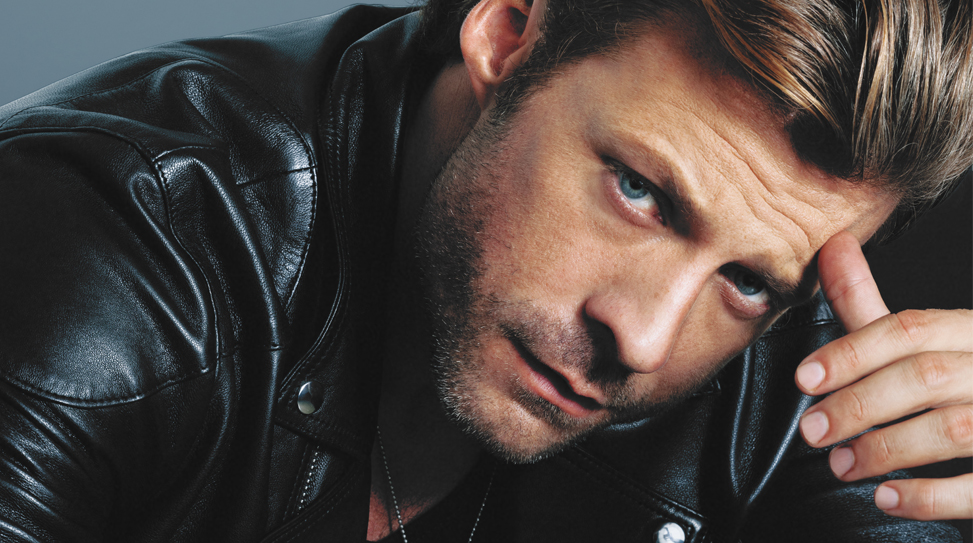

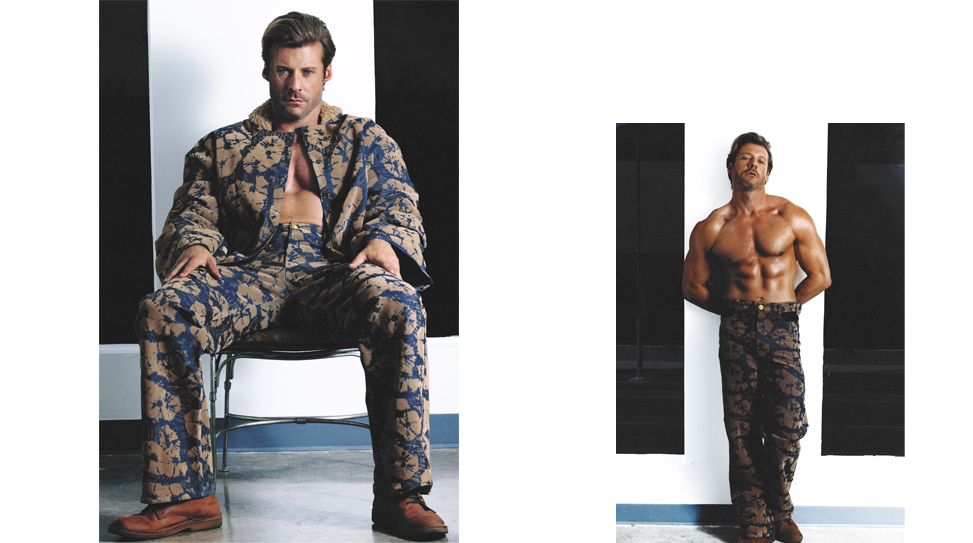
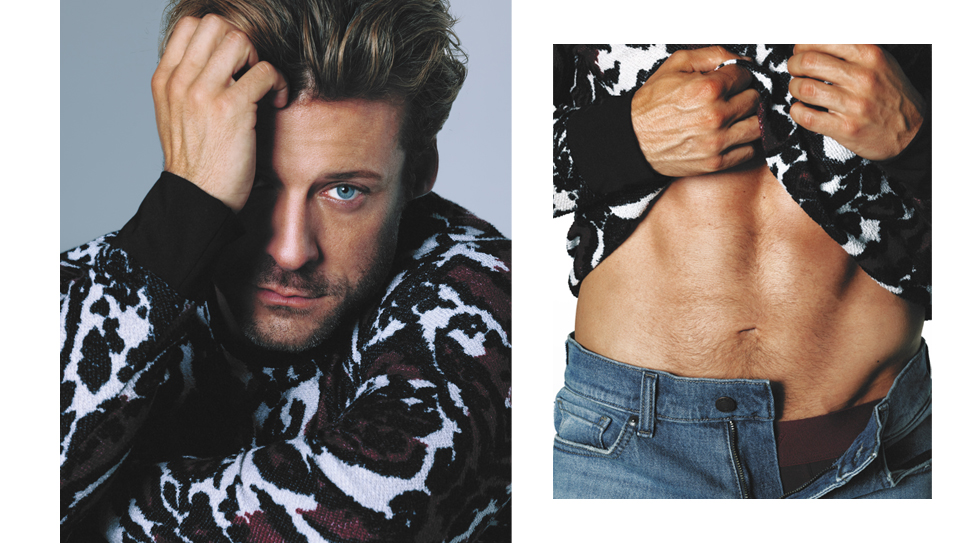
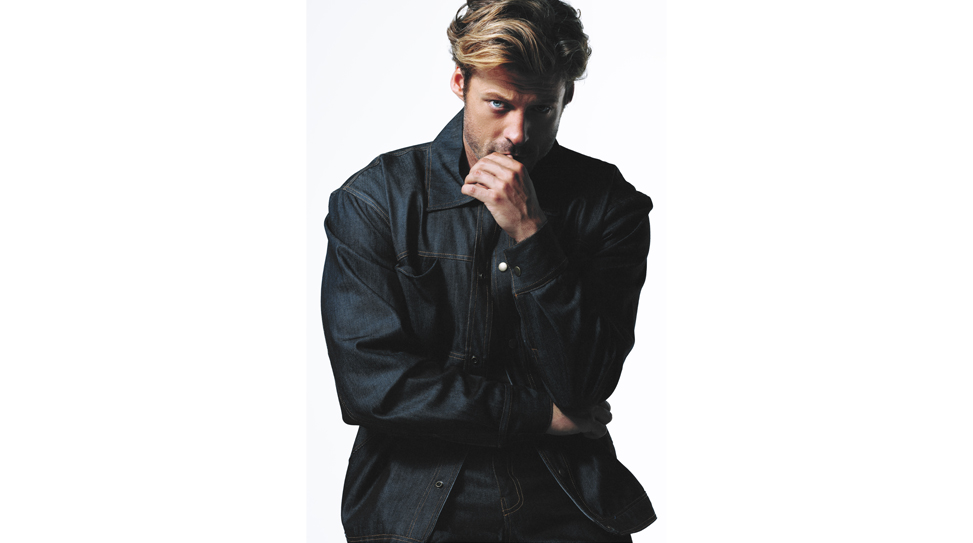
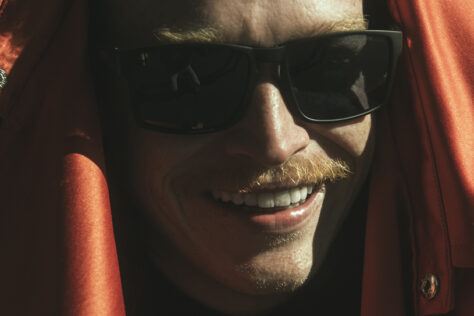 Let the Right One Win
Let the Right One Win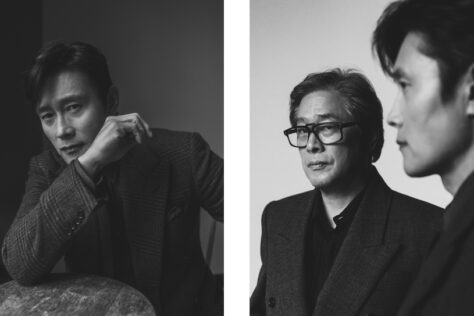 Endangered Species
Endangered Species
No Comments